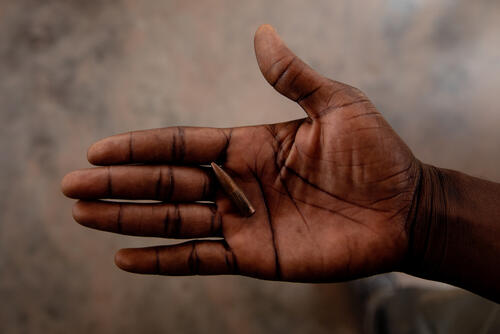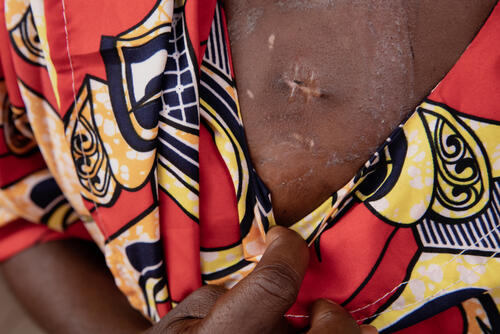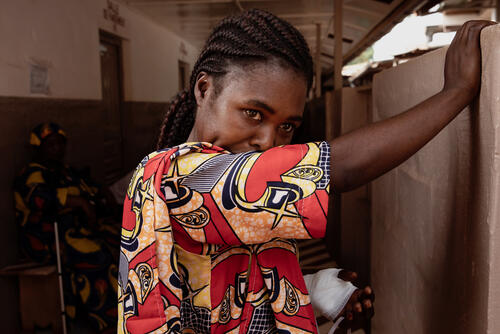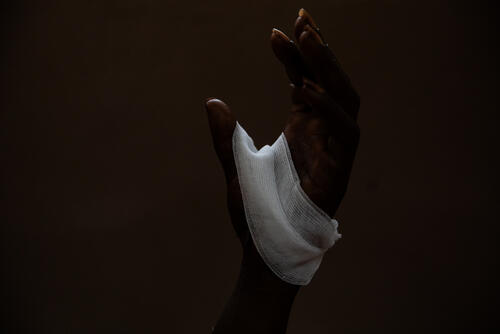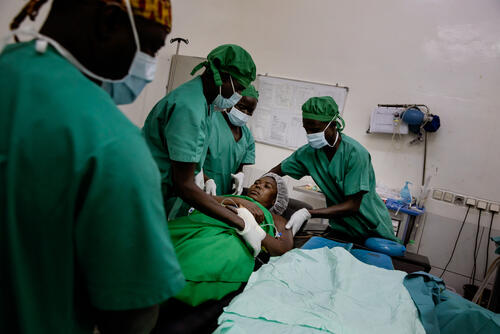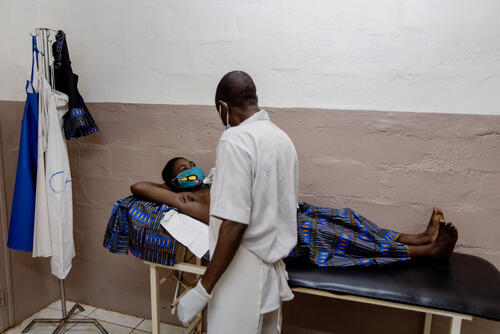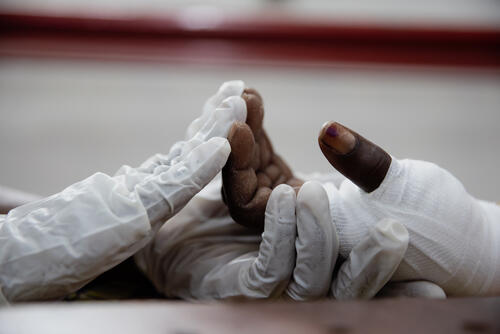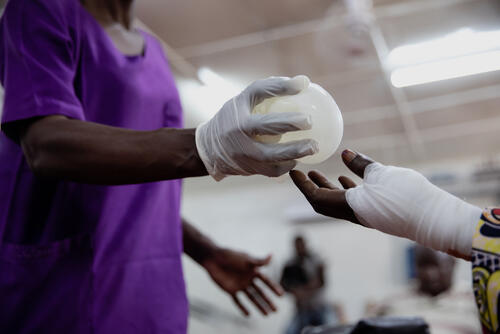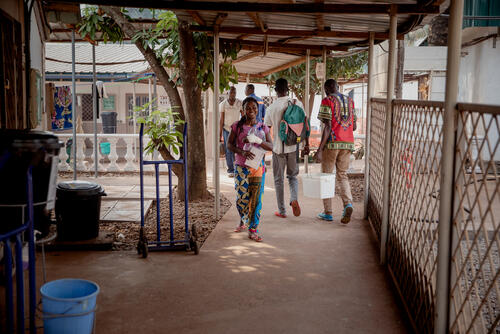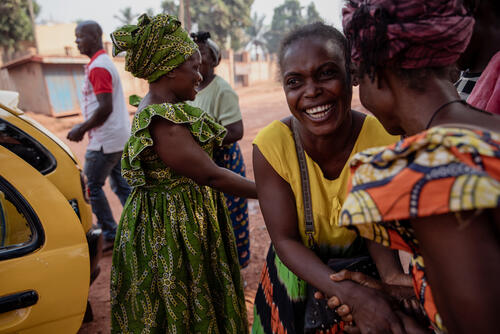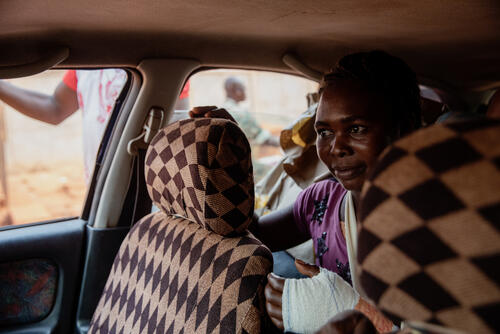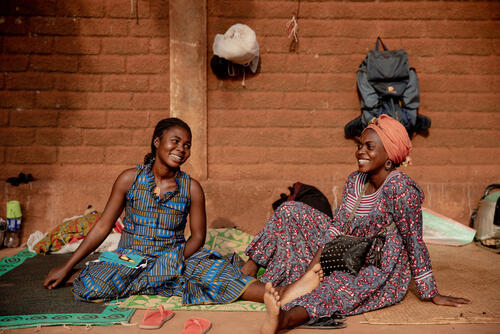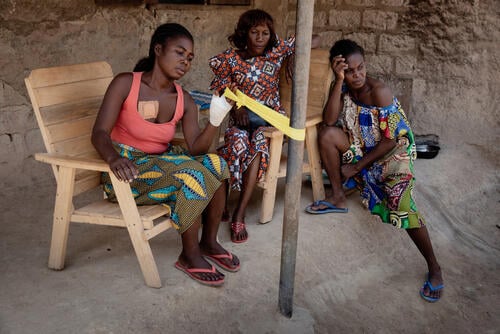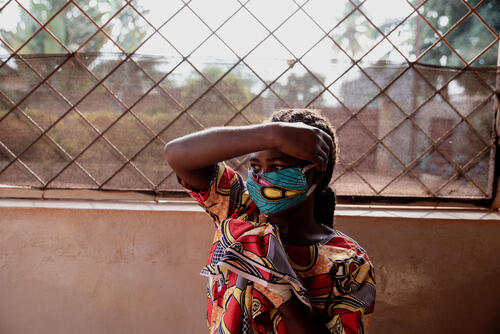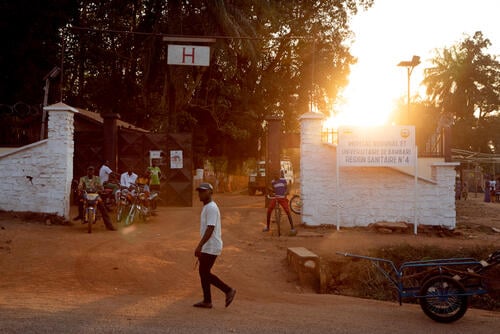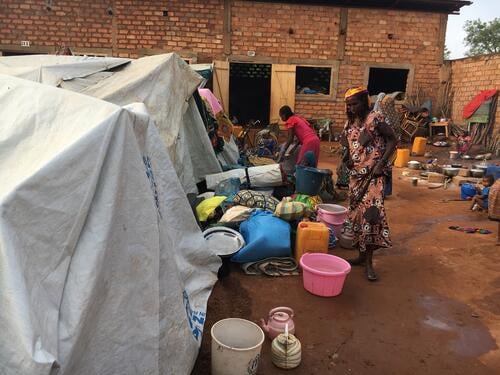Since last December, the security and humanitarian situation has deteriorated rapidly in Central African Republic (CAR), as a coalition of armed groups, called Coalition des Patriotes pour le Changement (CPC), and the government, supported by UN military personnel and foreign troops, are clashing in the wake of presidential and general elections.
After numerous offensives across the country, fighting took place on the outskirts of the capital, Bangui, on 13 January 2021. Thirty-one-year-old France Beldo was shot and wounded that day, and taken to SICA Hospital, a surgical trauma facility run by Médecins Sans Frontières (MSF).
France was hit by a stray bullet while at home on her terrace in Damala neighbourhood. The bullet hit her hand, chest and shoulder, luckily without causing damage to any vital organs.
“The shooting eased off, so we went out on the terrace. I was talking to my daughter when a bullet hit me,” says France.
“I wondered if I was going to survive. They took me on a motorbike [to SICA hospital] and I regained consciousness”.
“They gave me medication and provided first aid, then took an x-ray. Three days later I had my first surgery,” she says.
MSF teams provide free surgery and trauma care in this 80-bed hospital built in 2017. SICA hospital has an emergency room and two operating theatres, and offers comprehensive treatment, including post-operative care and physiotherapy.
In the wards, road traffic accident victims, who represent the majority of trauma patients treated every year at the hospital, are alongside war-wounded and victims of violence, with bullet or stab wounds.
“After the dressings, they take me to have physiotherapy for my hand. I exercise it, and they put cream on it,” says France.
“Then there’s the massage, and I touch and feel objects for them to evaluate my mobility. They massage my leg too. They do a lot of good work on me.”
After orthopaedic or visceral surgeries, convalescence often takes months or even years. The physiotherapy department of SICA hospital plays an essential role in the patients’ healing process. In order to ensure optimal recovery, regain motion and avoid disabling consequences, physiotherapists start work as soon as the operation is over.
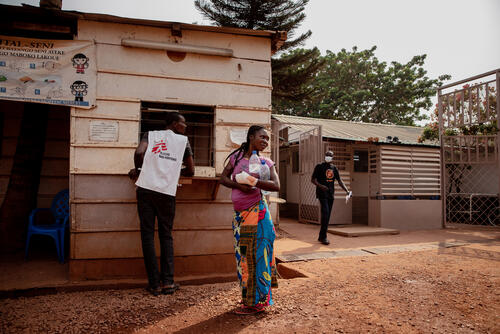
On January 22, France completed her inpatient treatment and is ready to go home. She will return regularly at SICA hospital for medical follow-up, dressing care and physiotherapy.
The day before, the government announced a 15-day state of emergency across the national territory. Tensions continue to run high.
In a country already hard-hit by years of civil war and facing a chronic health crisis, this latest cycle of violence is further exacerbating people’s vulnerability.
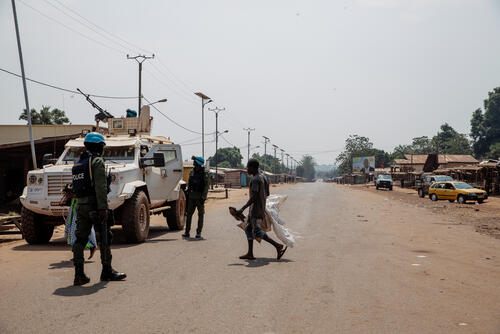
At the gates of SICA Hospital, France and her family say goodbye to the relatives of other admitted patients, before getting into the taxi that will take them home.
During her stay at hospital, France’s sister, aunt and mother took care of her, helped her wash and eat, and often slept outside waiting for visiting hours.
By practicing her physiotherapy exercises twice a day at home, she hopes to regain full and painless motion as quickly as possible. She moves her fingers more freely, but her forearm hurts.
“I’m a shopkeeper. I sell small stuff here in my home,” says France. “But since the incident, all my money’s gone. I don’t sell anything anymore.”
She hopes to be able to stand up, walk, and get rid of the pain to resume her activities.
Her health has improved but still requires outpatient care on a regular basis. She feels tired. Her left leg has been hurting for a few days now and she can barely walk.
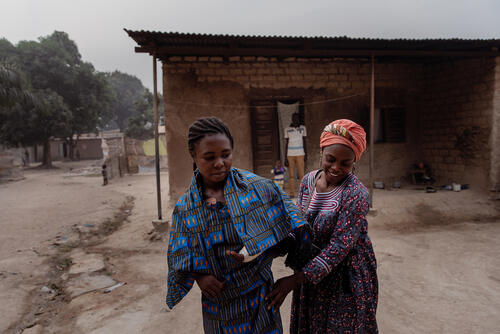
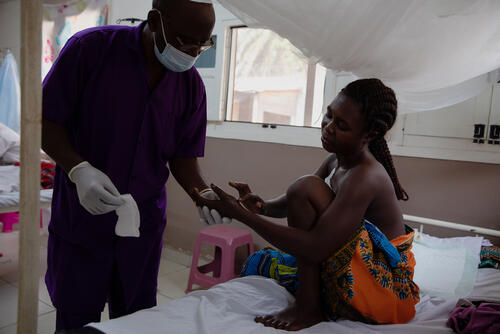
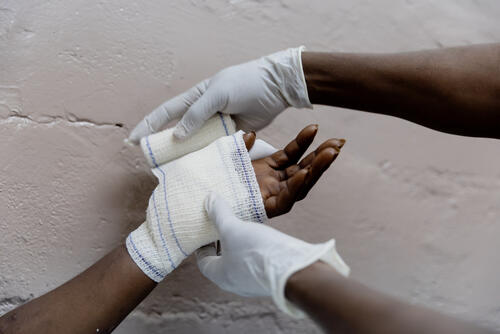
A bullet is still lodged in her left shoulder.
“For now, my arm’s immobilised, and I can’t get around. I’m often hungry, but I don’t have the money to feed myself properly,” says France.
The bullet wound paralysed one of my legs. I have nerve pain and the wound where the bullet penetrated hurts. My chest and my arm hurt, too.”



